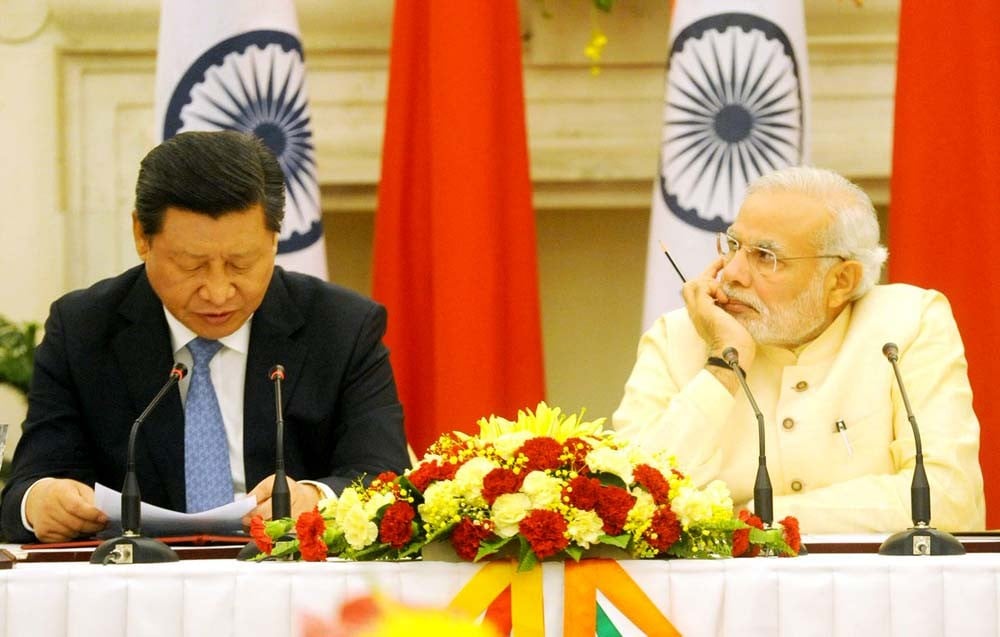
Instead of engaging in arms race, both Pakistan and India should cooperate to promote trade for prosperity in the region

India’s overambitious foreign policy fell flat last month when its application for full membership of the nuclear suppliers group was rejected from the beginning and not even discussed at the plenary session of the NSG in Seoul. The rejection of the bid came as a national disappointment in India and humiliation of the country in the world from the perspective of the foreign policy failure.
The Indian policymakers now will have enough time to visit and revisit the causes of their strategic failure, but their ability to find the answers to the deep-seated troubles in the heart of their foreign policy is questionable. They could not tout the international community to accept their own version of nuclear proliferation or non-proliferation.
All that Indian officials tried to sell was the idea that Pakistan was involved in nuclear proliferation and India was not. And they simply failed in it. The anti-Pakistan rhetoric has not only defaced the socio-political structure of the Indian union, but has also bagged tons of international condemnation on various occasions.
Ironically, the NSG (Nuclear Suppliers Group) was founded in response to the Indian nuclear test in May 1974 and the first meeting of the group was held in November 1975. The group consists of nuclear supplier countries which prevent nuclear proliferation by controlling the export of material, equipment and technology that could potentially be used in atomic devices. Now the same country desperately wants to join the group without signing the Nuclear Non-Proliferation Treaty.
According to experts, India is non-signatory to the NPT and does not meet minimum standards, behaviour or criterion of the NSG members and hardly believes in the basics of non-proliferation motivations. The Indian government does not believe in disarmament, has not stopped the production of fissile material and has failed to give any assurance to the international community that it will not conduct nuclear tests in future. Despite this, the United States has signed a nuclear treaty with India and is trying to stuff it into the group.
As the only superpower in the world, the United States’ opinion is often regarded as the world opinion on the basis of which the Indian government was sure that it would not face any problem in getting membership of the elite group. India successfully obtained exemption from the group about eight years ago without any apparent opposition from China. But China did not oppose India even this time, but wanted a criterion to allow new memberships. China itself joined the NSG in 2004 after fulfilling the requirement of the NPT in 1992. According to a Chinese official, without understanding the political and legal basis of the NPT, there will be no moral grounds to resolve nuclear issue on the Korean peninsula.
However, the Indian government has put all the blame of its failure on China, ignoring the fact that 10 other countries, including Brazil, New Zealand and Switzerland also opposed its inclusion into the group in defense of principles.
China wants thorough discussion among the member states to reach a conclusion. However, intense diplomatic offensive have been launched by India and the United States to leave China alone and allow New Delhi to walk into the group without signing the NPT. It is unfortunate that an overpopulated India has failed to act as responsible nation. There is hunger, disease and misery all over India, but instead of changing the lot of the people, its government is indulging in costly defense buying and subterranean missions in South Asian countries and beyond to unstable the entire region.
When other countries are making economic blocs and coming closer to enhance business and trade, this region is engaged in arms race. The whole of the South Asian region is politically unstable, but instead of giving a helping hand to each other, the countries in this region are unceremoniously at secret or open missions against each other.
Pakistan bashing has become the core principle of Indian politics and political parties spew venom as much as they could to get popular vote. At least 466 million Indians live below the poverty line, a population more than the African continent. But it is trying to become a military power.
The era of wars has ended and it is time for economic cooperation and development. China and India already have around $75 billion trade and hostility is not an option for both the countries. Pakistan, China, India, Iran and Turkey can form a five-nation economic bloc which will not only enhance regional economic integration, but will also ensure political stability and peace in the member states.
Pakistan and India have not signed the NPT and both seek the NSG membership. India based its campaign at one point: since Pakistan is allegedly involved in proliferation and India is not, therefore, it deserves membership. This idea could not get a buyer and simply failed. It will be now plausible for the two countries to jointly struggle for the membership and support each other in the group. Despite political challenges, it is good omen that trade between Pakistan and India is growing. The fate of the two nations lies in cooperation with each other.